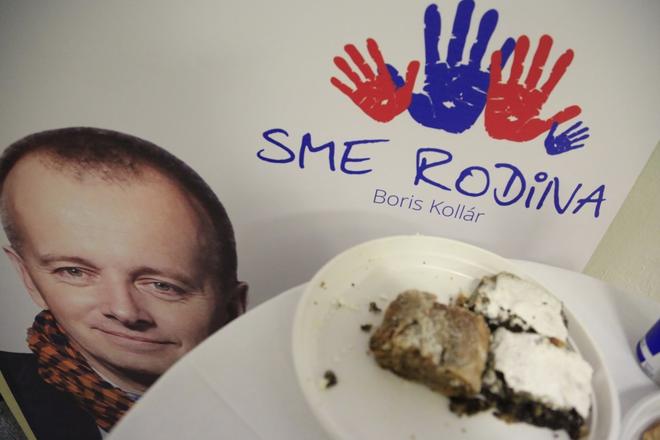The achievement of Boris Kollár’s Our Family in entering parliament on their first try has been somewhat overshadowed by the dismaying popularity of Marián Kotleba’s radicals in Our Slovakia. But I’m guessing the Family is not feeling neglected; quite the opposite. This is a party that has reason to fear close scrutiny.
That reason is quite simply the disturbing number of contacts between people on Our Family’s election candidates list – and now among its soon-to-be MPs – and organized crime. Party founder Kollár himself, for example, co-owned two Bratislava companies (Pressburg Invest and Apex) with slain Bratislava gangster Peter Steinhübel in the early to mid-1990s. A second of Kollár’s business partners in Apex, gangster Roman Deák, was slain a year before Steinhübel, in 1999.
Then there was the Solisko Šport firm, where Kollár was on the board of directors while Ľubor Jajcaj was on the supervisory board; Jajcaj, a member of the Takáč crime group, died of cancer in 2007.
Another business partner of Kollár’s, František Lefler (they figured in half a dozen companies together), co-owned Lotos-Paper’s in the mid-1990s with senior Takáč gang members Ivo Ružič and Jozef Surovčík.
Number 9 on the Family candidate list, Ľudovít Goga, like Kollár figured in the 1. Tatranská ski company in Štrbské Pleso with Martin Findura, a business partner of Poprad strongman Ondrej Žemba. Oh, and let’s not forget about Petra Krištúfková, the common-law wife of murdered gangster Róbert Dinič (1998), who is No. 5 on the Family candidates list.
As Kollár tells it, his Family was founded after an old friend, Peter Marček, approached him with the idea of transforming his moribund Slovak Citizens Party (SOS). Marček, formerly head of the Slovak Wrestling Association, figured in the K.U.K.S. company with murdered gangster and lifelong wrestler Jozef Svoboda in 1995. Of Svoboda he once said: “I’m not trying to defend him here, but everyone says Svoboda was a gangster. He was never investigated, charged or found guilty. He was just a businessman who knew influential people from politics.”
These are disturbing associations. But in post-election Slovakia, with fascists preparing to take their parliamentary vows, there will inevitably be a tendency to downplay them. Such as by noting the time that has passed since these contacts were active; the right of Family MPs to be presumed innocent of wrongdoing; and the fact that Slovakia is a small place, where everyone knows everyone else.
Let the reader judge. But it would perhaps behoove this country’s next prime minister, if he is thinking of accepting Family as a coalition partner, not to give them the keys to the European structural funds program, or authority over the justice system or the police. And while he’s at it, perhaps someone should keep a sharp eye on the silverware at cabinet meetings.



 Election night in the headquarters of Sme Rodina. (source: SITA)
Election night in the headquarters of Sme Rodina. (source: SITA)